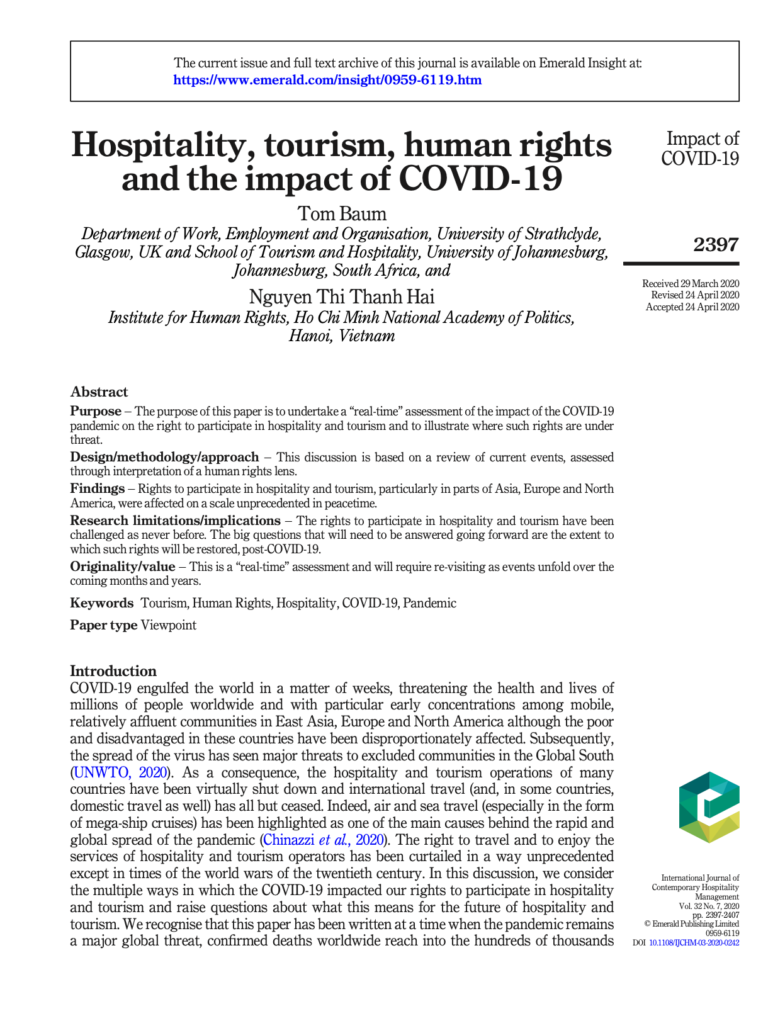COVID-19 engulfed the world in a matter of weeks, threatening the health and lives of millions of people worldwide and with particular early concentrations among mobile, relatively affluent communities in East Asia, Europe and North America although the poor and disadvantaged in these countries have been disproportionately affected. Subsequently, the spread of the virus has seen major threats to excluded communities in the Global South (UNWTO, 2020). As a consequence, the hospitality and tourism operations of many countries have been virtually shut down and international travel (and, in some countries, domestic travel as well) has all but ceased. Indeed, air and sea travel (especially in the form of mega-ship cruises) has been highlighted as one of the main causes behind the rapid and global spread of the pandemic (Chinazzi et al., 2020). The right to travel and to enjoy the services of hospitality and tourism operators has been curtailed in a way unprecedented except in times of the world wars of the twentieth century. In this discussion, we consider the multiple ways in which the COVID-19 impacted our rights to participate in hospitality and tourism and raise questions about what this means for the future of hospitality and tourism. We recognise that this paper has been written at a time when the pandemic remains a major global threat, confirmed deaths worldwide reach into the hundreds of thousands and its potential for further spread in the Global South remains considerable. At the same time, some countries are taking tentative steps towards re-opening their economies for social and business activity. Tellingly, hospitality businesses are frequently in the category which can expect to re-open last. How the hospitality industry will survive and revive in a post- COVID-19 world remains an unknown and it will be important to revisit this theme in the future.

